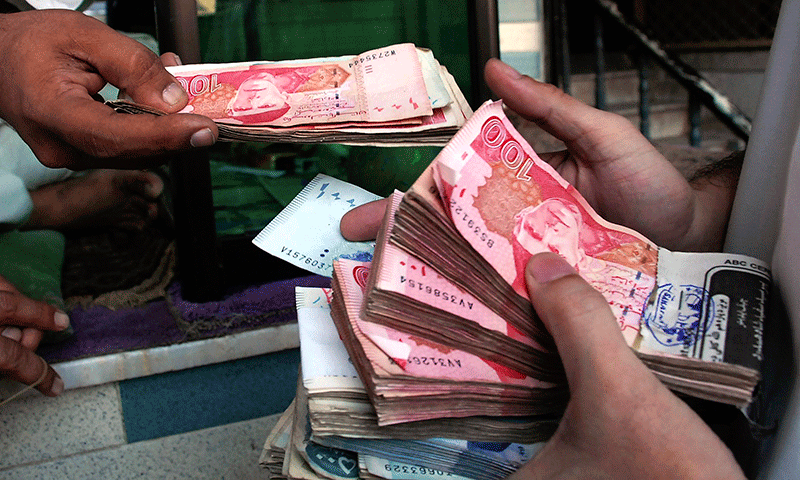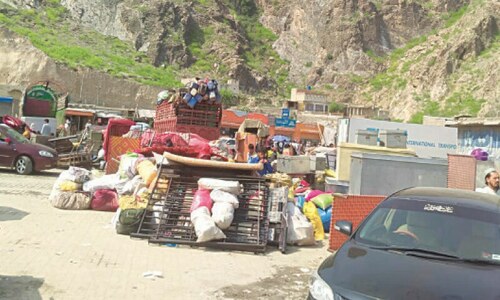KARACHI: Baloch insurgency in the conflict-ridden province of Balochistan is headed towards radicalisation, which is a tried and tested tactic of the state to disperse and weaken a movement, a representative of the Human Rights Commission of Pakistan said at a seminar on Wednesday.
The seminar was held at the Karachi Press Club to observe Human Rights Day and organised by the Voice of Missing Baloch Persons (VOMBP). Apart from many speakers at the event, the main speeches by the head of the advocacy group, Abdul Qadeer Baloch, and HRCP’s Asad Iqbal Butt were the most focused one and specifically provided a detailed view on the issue of enforced disappearances in Balochistan.
Speaking first, Abdul Qadeer Baloch, aka Mama Qadeer, gave a long list of enforced disappearance incidents reported and unreported in the province, but without specifying the time frame during which these incidents occurred.
Narrating the incidents in Mastung, Kohlu and Dera Bugti — from where men have disappeared in recent past — he said: “These are recent instances. But overall, 21,000 Baloch youths are missing at the moment. Within the past few years, we have received 6,000 mutilated bodies, tortured so badly that it took weeks to ascertain their identities.”
From the issues of those disappeared, he then spoke about the military operation allegedly continuing in Kech district.
“During the military operation in Tump and Gomazai, (tehsils near the Iran-Balochistan border), bodies were thrown from helicopters and homes were forcefully evacuated and torched. We have seen it all. And whether it takes me weeks or years, I’ll continue to raise my voice against the treatment meted out to our people by the security forces,” he said.
As a result of the alleged operation, which, he said, continued from time to time, “around 200,000 people have migrated from various tehsils of Kech district to comparatively safe areas”.
He said that apart from killing the young, “it has now come to our namoos [honour]”. In his speech, which went on for over an hour, he said that registering an FIR at a police station got difficult once officers knew that the man was abducted by ‘them’.
Speaking about a recent visit of an HRCP fact-finding mission to Quetta, which included Zohra Yusuf, Asma Jahangir and Asad Iqbal Butt, he said they were “not allowed to visit Khuzdar to follow up on the discovery of mass graves”.
Abdul Qadeer put two of his demands as part of the ongoing movement for the recovery of the missing persons. “Our men, young and old, must be produced before higher courts, where evidence against them, if any, should be presented. Two, let fact-finding missions and commissions made by the government visit areas get a detached view of the situation surrounding the province, if the one provided by us seems calculated or agenda driven.”
From then onwards, he spoke about how they were being avoided by mainstream news channels. Pointing towards the sole camera of a Balochi news channel, he said, “There are very few people who cover us. And it seems, quite obviously, that these organisations have chosen their side in this dispute, which requires them to be impartial.”
Vice chairman of the HRCP Asad Iqbal Butt spoke about the recent radicalisation that seeped in the province “to contain the insurgency or deal with it directly”. He said that religious organisations were “being strengthened in the province specifically in areas mired in insurgency. As a result of it, persecution of minorities started occurring in the recent past — something which was never seen or heard before”.
He said that radicalisation was supported to a great extent by the state, so much so that a recent case of a 14-year-old boy in the province was met with silence, as people were confused for the first time as to “who to blame”.
Published in Dawn December 11th , 2014













































